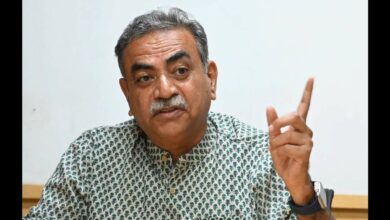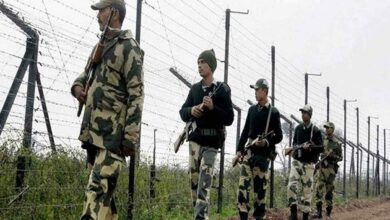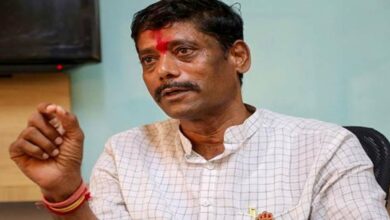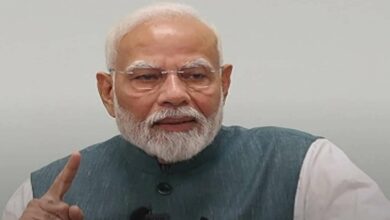President will be the chief guest on the occasion of Human Rights Day on December 10
On December 10, Vigyan Bhavan here will mark Human Rights Day, with President Droupadi Murmu as the Chief Guest.
Every year on December 10th, Human Rights Day is celebrated to honor the 1948 United Nations General Assembly adoption and proclamation of the Universal Declaration of Human Rights (UDHR).
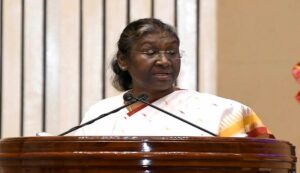
A worldwide standard for the defense and advancement of human rights is the UDHR. Human Rights Day is seen by India’s National Human Rights Commission (NHRC) as a chance for all parties involved to consider their duties and conduct and make sure they don’t support human rights abuses.
With the rights to life, liberty, and security, equality before the law, and freedom of thought, conscience, religion, opinion, and expression, the UDHR upholds the idea that all people are created equal and free. The Protection of Human Rights Act (PHRA), 1993, which established the legal foundation for the National Human Rights Commission (NHRC), India on October 12, 1993, and the Indian Constitution both uphold this notion.
On December 10, 2024, the NHRC will host an event in the Vigyan Bhavan’s Plenary Hall in New Delhi to commemorate Human Rights Day. In the presence of the NHRC, India Acting Chairperson Vijaya Bharathi Sayani, Secretary General Bharat Lal, senior officers, members of statutory commissions, SHRCs, diplomats, civil society, and other dignitaries, President Droupadi Murmu will serve as the Chief Guest.
A National Conference on “Mental well-being: Navigating stress from classroom to workplace” will take held after this event. The three seminars are titled “Stress in Children and Adolescents,” “Mental health issues in higher education institutions,” and “Stress and burnout at work.”
The conference’s objectives are to examine the psychological effects of stress at different phases of life, from school to work, and to provide suggestions for enhancing mental health in a variety of fields.
“Our Rights, Our Future, Right Now,” this year’s Human Rights Day theme, highlights that human rights are not just idealistic but also a useful instrument for enabling people and communities to build a better future. Accepting the transforming power of human rights may contribute to the creation of a more sustainable, just, and peaceful society. Global action for a future based on human dignity must be renewed now.
In addition to economic, social, and cultural rights, the Commission has always sought to guarantee the preservation of civil and political rights. Through a number of initiatives, it has significantly raised awareness among public authorities and civil society and mainstreamed a human rights-centered approach in government policies and activities. In addition to conversing with government representatives, statutory commission members, civil society, NGOs, human rights advocates, experts, and state human rights commissions, it keeps promoting human rights conversations in national and international fora.
From its founding on October 12, 1993, until November 30, 2024, the NHRC, India, had a number of open hearings, camp sittings, and spot investigations. It recorded 23,14,794 instances in all over the course of more than three decades, resolved 23,07,587 of them, including 2,880 cases based on suo motu cognisance, and suggested around Rs. 256.57 lakh in monetary assistance for victims of human rights abuses.
Between December 1, 2023, and November 30, 2024, the NHRC, India, received 65,973 cases and resolved 66,378 of them, including matters that were carried over from prior years. It recommended Rs. 17,24,40,000 in monetary reparation to victims of human rights breaches during this time last year after taking suo motu cognizance in 109 instances. Additionally, the Commission hosted a camp in Andhra Pradesh’s Vijayawada.
The assessments of many legislation, laws, conferences, research projects, 31 advisories, and more than 100 publications—including monthly newsletters and media reports—all attest to the NHRC, India’s work in advancing and defending human rights, further demonstrating its influence. Child sexual abuse material (CSAM), widows’ rights, the right to food, health, mental health, the rights of informal workers, and environmental degradation are only a few of the topics covered by the warnings.
Fourteen Special Rapporteurs have been selected by the NHRC to evaluate the state of human rights in different parts of the nation. After visiting shelters, jails, and other comparable establishments, these rapporteurs write reports that include suggestions for further action. Furthermore, the Commission receives reports from 21 Special Monitors who concentrate on particular human rights concerns.
To finalize recommendations, the Commission routinely consults with experts and high-ranking government officials and has formed 12 core groups on a range of human rights issues. Additionally, it hosts open house talks with interested parties on a range of human rights topics. It conducted a number of core group meetings, open house talks, and nationwide consultations on a range of human rights issues throughout the previous 12 months.
In order to safeguard and advance human rights, the NHRC, India continues to work with the federal and state governments, parastatal organizations, educational institutions, non-governmental organizations, and human rights advocates. In order to provide All India Services officers—including IAS, IPS, and IFS officers—a better grasp of human rights so they may impart this information inside their organizations, the Commission launched a new initiative this year to raise awareness of the issue.
Students from all throughout the nation benefited from the Commission’s organization of over 55 cooperative workshops, six moot court tournaments, and several internships.
44 schools and universities sent professors and students to the Commission to receive orientation on human rights and the safeguards in place to preserve them. In order to increase knowledge of human rights, it also sponsored talks for State Police organizations and Central Paramilitary troops.
In a number of cases, the NHRC, India, has stepped in. It has recommended free housing for homeless people, compensated victims of communal riots, helped with the rehabilitation of people displaced by natural disasters, and sent notices to sports organizations to address workplace harassment of women. Additionally, it has stepped in to stop debt-ridden farmers from killing themselves and suggested changes to 97 laws that discriminate against people with Hansen’s disease.
Through the HRCNet Portal, which links with state agencies and enables people to submit complaints online and monitor their progress in real time, the Commission has broadened its reach. The National Government Services site and more than five lakh Common Service Centers are connected to the site.


